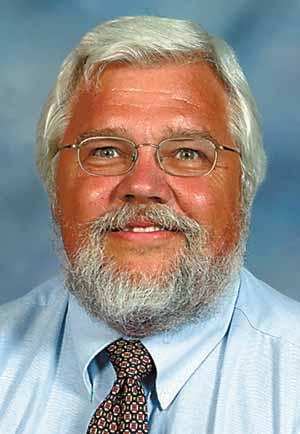
By Deacon Joe Dvorak
I was privileged to begin my Lenten journey this year by attending a parish mission conducted by Father John Jay Hughes at Sacred Heart Church in Newton. Father was a wonderful homilist and shared many insights but one insight caught my attention in particular.
During his Ash Wednesday homily, Father stated that people aren’t condemned to hell because of sin, but because they refuse to repent. We all fall short of the mark by sinning, but it is our refusal to acknowledge that sin and repent of it that leaves us in sin — leaves us in darkness.
This weekend, we again share the story of the healing of the man born blind. It is a wonderful story full of drama, intrigue, and quite a bit of humor. It is also a story that has much to teach us. For me, the key to the story lies in Jesus’ last statement: “If you were blind, you would have no sin: but now you are saying, ‘We see,’ so your sin remains.” Jesus is telling the Pharisees and us that the refusal to acknowledge our blindness and repent of our sins is what will condemn us.
The man born blind acknowledges his blindness, both physical and spiritual, and because of this, Jesus heals him. First Jesus heals his physical blindness and opens his eyes. But later, Jesus seeks him out again to offer him spiritual healing, too. The blind man is open to the spiritual healing, sees and accepts the signs that Jesus is the messiah, the savior, and falls down and worships him. His spiritual eyes are opened and his soul is filled with the light of Jesus. This is in direct contrast to the Pharisees, who do not acknowledge their blindness — a blindness that stops them from seeing the signs and recognizing Jesus as the messiah. Because they are not willing to acknowledge their blindness, Jesus is unable to heal them.
This Gospel story is the sixth of the seven signs found in the Gospel of John. John does not refer to them as miracles but as signs because they are indeed signs of Jesus’ saving power. Jesus performs these signs so that we may see and believe. The blind man does see, believes and is saved. The Pharisees refuse to see and are lost.
Lent is a time of repentance. But repentance is so much more than doing penance for our sins. True repentance is a metanoia, a turning away from sin and towards God. God gives us the special gift of these 40 days so we can examine our lives, acknowledge our sin and blindness, be open to the signs, and accept Jesus as savior and worship him. After all, when our time of judgment comes, we would not want to hear those words from Jesus: “You are saying, ‘I see,’ so your sin remains.” Instead, let us hear and heed that beautiful command from Paul in his letter to the Ephesians, “Awake, O sleeper, and arise from the dead, and Christ will give you light.”
(Deacon Dvorak is parish life administrator at Immaculate Conception Parish in Colfax.)








